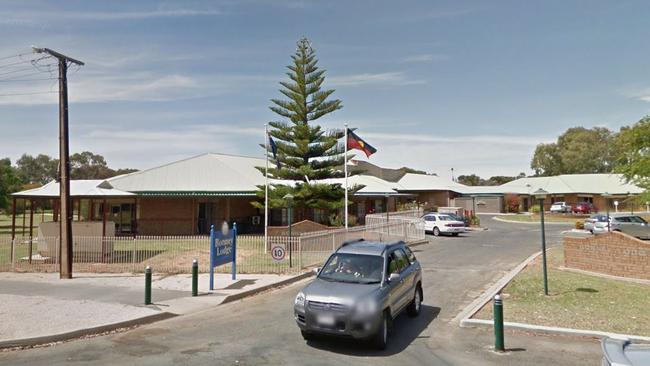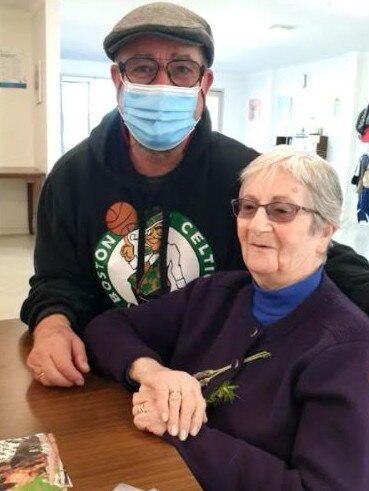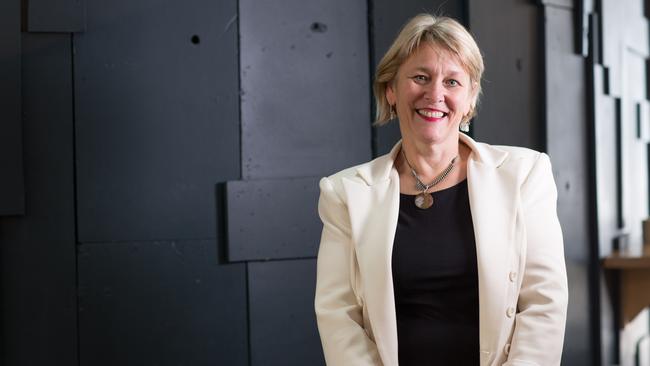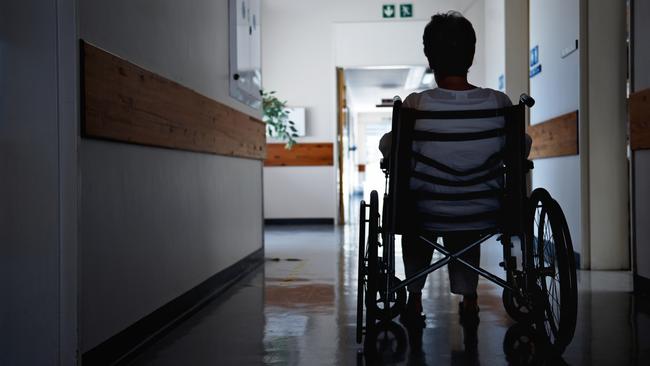15 SA aged-care homes fail to provide adequate care to residents
An aged-care crackdown in South Australia has revealed that a concerning number of centres are failing to provide adequate care to residents. See the list.
SA News
Don't miss out on the headlines from SA News. Followed categories will be added to My News.
An aged-care home crackdown has revealed that a concerning number of South Australian facilities are failing to provide adequate care to their residents.
There are 15 aged-care homes in SA that have current noncompliance orders against them imposed by the Aged Care Quality Safety Commission (ACQSC).
The number of homes failing to meet standards of care has increased from two when The Advertiser last investigated noncompliance in January.
ACQSC’s Janet Anderson said the high number of noncompliance orders reflected the national trend and was due to improved assessment and monitoring, with site visits increasing by 1600 in 2020-21.
A further 1500 safety audits will be conducted nationally this financial year, after ACQSC received $25m as a result of recommendations from the aged-care royal commission.
The report’s damning findings found one in three people living in care experienced neglect, physical or emotional abuse, and made 148 recommendations to improve the sector.
Ms Anderson said the commission already had improved information and intelligence from complaints and other sources, which enabled it to “focus effort where it is needed most”.
The introduction of the Aged Care Quality Standards in 2019, which strengthened the focus on consumer-centred care, had also “raised the bar for providers”.
Of the 15 non-compliant homes, nine are in regional locations, prompting calls for better incentives to encourage aged-care workers to move to remote locations.

Edenfield Family Care Nerrilda, at Port Augusta West, was found to have failed in all eight care standards and handed a noncompliance notice on July 23.
“We wish to assure our residents and families, staff and the community that we are working diligently to ensure that we continue to deliver the quality care that our residents deserve and expect,” a facility spokesperson said.
Whyalla aged-care operator Kindred Living is also under fire after its three homes were found to be non-complaint in recent audits by the ACQSC.
One of its facilities, Annie Lockwood Court, announced it would close in September following a litany of issues, including an alleged scabies outbreak last year.

Allan Harvie’s mother, Cecilia, 88, became a resident of the home in July 2020, after her husband and main carer, Ivor, died.
Mrs Harvie needs 24-hour care and Mr Harvie is facing the heartbreaking decision of possibly sending his mother, who has lived in Whyalla for 70 years, to Adelaide.
“I’m not sleeping, I’m devastated,” Mr Harvie said.
“It was hard enough saying goodbye to Dad and then putting Mum in a home, but now finding out the home she’s in is more or less kicking her out.
“To move her out of Whyalla is going to devastate her, because that’s where she wants to live for the rest of her life.”
SA Best’s Frank Pangallo said the regional aged-care sector was in a “dire” position after seven sites closed last year and called for a greater focus on aged care across SA.
“I would say that part of the reason for these facilities being under such enormous pressure and scrutiny is because they are unable to attract the staffing levels required to maintain those standards,” Mr Pangallo said.
He will move to form a select committee in the state’s Legislative Council next year to address problems in the regional aged-care sector.
“We need to look at the needs in regional communities for aged care and the direction it’s going to take for future generations,” Mr Pangallo said.
“Theses are the most vulnerable members of our communities and we should also value them, and value the last years of their lives, but instead it’s out of sight, out of mind, which is really disappointing.”

Council of the Ageing SA chief executive Jane Mussared said the high number of regional homes failing to meet basic standards was not good enough.
“Postcode should not dictate the quality and availability of care for older people,” Ms Mussared said.
“While there is no excuse for poor quality aged care, there is no doubt that finding a quality aged-care workforce outside metropolitan Adelaide is getting harder and harder.
“It is becoming almost impossible to get enough staff with the right training, skills and experience to work in regional aged care.
“This needs a concerted focus from our federal and state governments with aged care providers.”
Federal Senior Australians and Aged Care Services Minister Richard Colbeck said the government had invested $262.5m to strengthen the regulatory capability of the ACQSC as part of its comprehensive $17bn response to the Aged Care Royal Commission.
“Additionally, an investment of $148.3m for long-term, sustainable resourcing will allow the commission to respond to increasing growth within the sector and respond to complaints and initiate investigations faster,” Mr Colbeck said.
The Aged Care Quality and Safety Commission urged anyone concerned about the services being provided at an aged-care facility to contact it on 1800 951 822.

Case Study #1: Balaklava
It wasn’t until the wife of an aged-care resident suffering deteriorating weight raised the alarm that they were referred to a dietitian.
In March, the Aged Care Quality Safety Commission undertook an audit of Ira Parker Nursing Home in Balaklava, where a resident was found to have lost 9.2kg in three-and-a-half months.
Five referrals were made to a dietitian between August and December last year, but the client’s risk of malnutrition was not effectively managed, the audit report found.
“Following concerns raised by the consumer’s wife regarding weight loss, as documented in progress notes, the consumer was reviewed by a dietitian on 9 December 2020,” the report said.
Registered staff had not followed safe medication administration practices, the report found, which had led to residents missing medication and receiving the wrong medication.
Residents also found there were not an enough staff to meet their needs.
“This impact included the consumer’s ability to remain continent due to delays in call bell response times when they required toileting,” the report said.
The home is part of the Balaklava Soldiers’ Memorial District Hospital.
A statement from the Yorke and Northern Local Health Network said it was pleased the nursing home had been re-accredited by the Aged Care Quality Safety Commission.
“We would like to thank each and every staff member for their valuable contribution and continued dedication to providing the best care to our patients and consumers every day,” it said.
Case Study #2: Port Lincoln
An incident involving a staff member using unreasonable force on a resident at a Port Lincoln aged-care home was not recognised as serious enough to report to authorities, a recent audit found.
A report into the site audit conducted in March this year at Eyre Peninsula Old Folks Home said the incident had been witnessed by two members of staff but not recognised by management or reported in line with legislative requirements.
“The incident was investigated and the staff member placed on a first and final warning,” the report found. Site auditors said there were no specific monitoring processes to ensure reportable assaults were identified and actioned in line with legislative requirements.
“The chief executive officer stated they did not believe the incident was serious enough to warrant reporting to the department of health, and the police,” the report said.
It also found the facility had not demonstrated effective management in relation to two residents who had lost weight over a short period of time, including one who lost 7.9kg in six months.
“Risks identified did not prompt a referral to a dietitian or reassessment or review of nutrition and hydration management strategies,” the report said.
A spokeswoman from the facility said the site was re-accredited for 12 months, and seven noncompliances were identified.
“All noncompliance issues raised have now been resolved,” she said.
Case Study #3: Davoren Park
Residents were left to shower alone and, at times, given the wrong medication at a northern suburbs aged-care home.
Regis Playford, at Davoren Park, failed in seven out of the eight care standards after an audit in February by the Aged Care Quality Safety Commission.
In the audit report, five residents said they were frequently left unattended by staff while showering, and were often left waiting for help after reporting they were in pain.
“Four consumers confirmed they were still in pain despite interventions and stated they often wait 30 minutes for staff to respond to requests for pain relief,” the report said. Residents also expressed concerns about the competency of staff in charge of administering medication.
“(Residents) relayed occasions when staff had administered incorrect medication, and had not demonstrated knowledge of using a nebuliser, and not administered medication or oxygen in line with best practice of the prescription,” auditors found.
The facility was also found to have failed in acknowledging the deterioration or change in a resident’s mental health, physical function and condition in a timely manner.
Some residents described waiting almost two weeks to be seen by a medical officer when experiencing severe pain or deterioration.
“The minimum time of review was 26 hours, through to 13 days following the request,” the report said.
A statement from Regis Aged Care said: “We have worked tirelessly in collaboration with our residents, families and the commission to resolve the concerns identified.”




